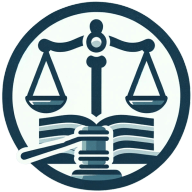How Do You Manage Challenging Witnesses?
Legal professionals often face the daunting task of obtaining testimony from difficult witnesses, a skill that separates the adept from the novices. A seasoned lawyer recounts the strategy of controlling witnesses with pointed questions, while we also explore additional answers that provide a spectrum of techniques. From the use of rigorous cross-examination methods to the subtlety of non-confrontational language, here's a compilation of strategies for navigating these challenging legal waters.
- Control Witnesses with Pointed Questions
- Practice Patience and Active Listening
- Consult Forensic Psychologists for Insights
- Use Clear and Non-Confrontational Language
- Maintain Firmness with Respectful Demeanor
- Employ Rigorous Cross-Examination Techniques
Control Witnesses with Pointed Questions
Unfortunately, dealing with adverse or particularly difficult witnesses is a common event for experienced trial attorneys. Two main ways to control the witness are short, pointed questions and questions that highlight their motivations and biases.
Practice Patience and Active Listening
When dealing with challenging witnesses, it's essential to actively listen and exhibit patience. This means giving the witness your full attention, nodding, and making eye contact, which can help to put them at ease and encourage their cooperation. By patient listening, you also show the witness that their testimony is valuable, which may help them to communicate more openly.
Allowing them ample time to answer and not interrupting can foster an atmosphere of mutual respect. When interacting with a difficult witness, remember to practice active listening and give them the time they need to express themselves.
Consult Forensic Psychologists for Insights
In instances where witnesses present themselves as particularly challenging, engaging a forensic psychologist can be a key strategy. Forensic psychologists are trained to understand the behaviors and mental states of individuals, which can be critical when evaluating a witness's testimony or reliability. They can provide insight into whether the witness is experiencing fear, deceit, or other emotions that might affect their testimony.
Their expertise can also offer suggestions on how to approach the witness to elicit more accurate information. If you encounter a difficult witness, consider consulting with a forensic psychologist for their specialized assessment.
Use Clear and Non-Confrontational Language
Utilizing clear and non-confrontational language is paramount when managing challenging witnesses. Speaking in simple terms without any hint of aggression helps to prevent the witness from becoming defensive. It is important to frame questions in a way that is direct but not provocative, as this can facilitate a more informative response.
By creating a dialogue that is free from confrontation, you may reduce the stress a witness feels, leading to a clearer account of events. Always aim to communicate in a way that is straightforward and calm when engaging with tough witnesses.
Maintain Firmness with Respectful Demeanor
A firm yet respectful demeanor in the courtroom can be vital when interacting with difficult witnesses. Displaying confidence without being overbearing sets the standard for the interaction, indicating that while their participation is necessary, it must adhere to the decorum of the court. Being firm also means not allowing the witness to stray off-topic, thus keeping the proceedings on track.
At the same time, treating the witness with dignity and respect helps in maintaining the courtroom's integrity. In your next encounter with a challenging witness, strive to balance firmness with respect to uphold the courtroom's dignity.
Employ Rigorous Cross-Examination Techniques
Applying rigorous cross-examination techniques may be effective for managing witnesses who are hard to navigate. This approach involves methodically questioning to explore inconsistencies or gaps in the witness's story. By carefully crafting questions that require specific details, you can guide the witness to reveal more accurate information.
It’s important to stay focused and prepared, as challenging witnesses can often be unpredictable. For any future encounters with difficult witnesses, employ thorough cross-examination to ensure you're getting the most accurate testimony possible.


